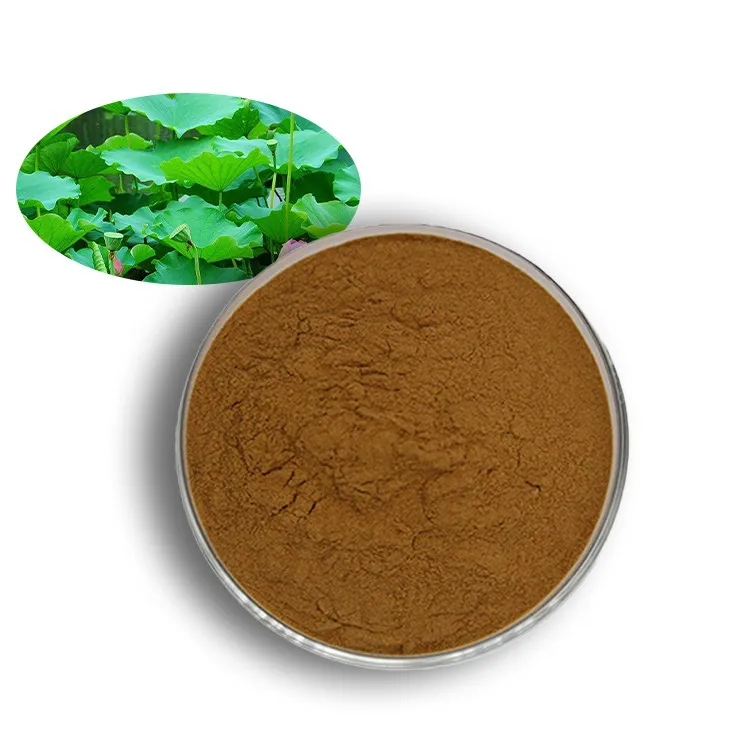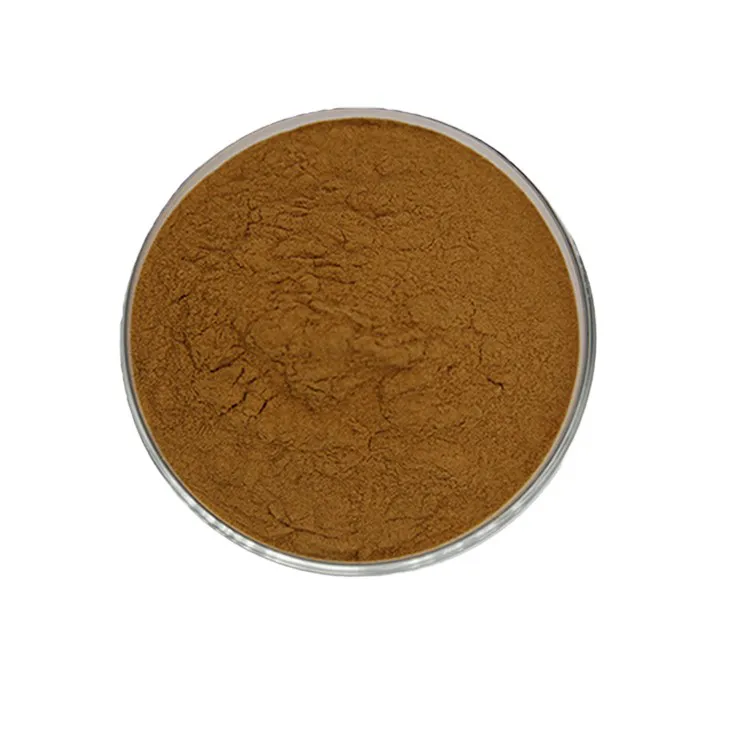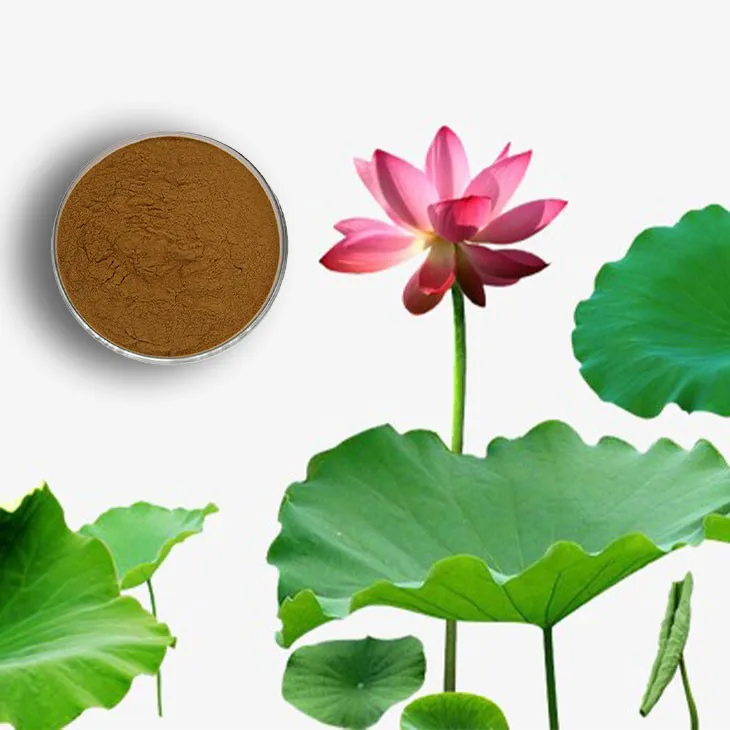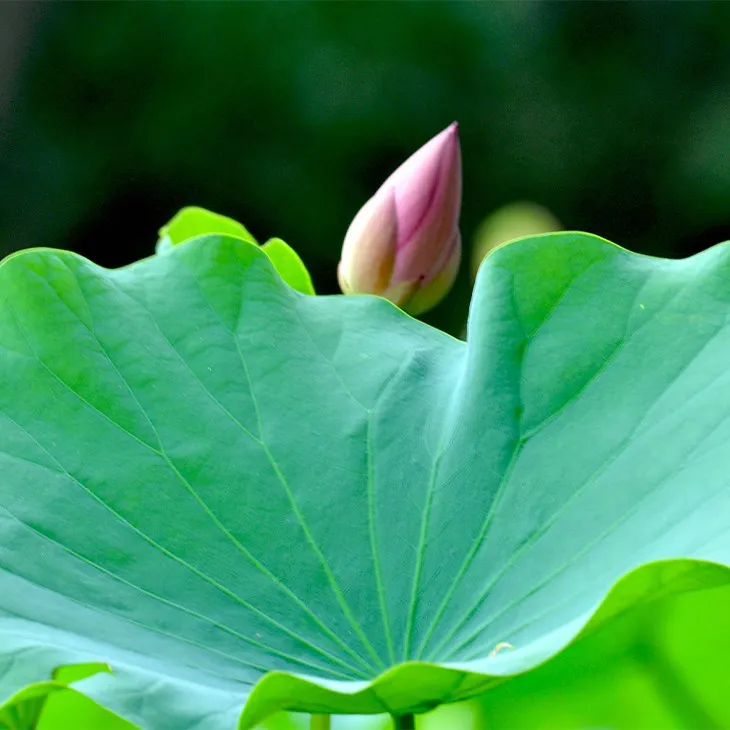- 0086-571-85302990
- sales@greenskybio.com
10 Kinds of Lotus Leaf Extracts Helpful for Improving Health.
2024-12-11

Introduction
The lotus leaf, a common yet remarkable plant part in traditional medicine, has been studied extensively for its various health - promoting properties. In this article, we will explore ten different Lotus leaf extracts that are beneficial for health in multiple aspects.

Lotus leaf extract 1: Alkaloids
Alkaloids are one of the important components in Lotus leaf extracts. These organic compounds play a significant role in weight management.
Research has shown that alkaloids in lotus leaf can help regulate lipid metabolism. They may interfere with the absorption of dietary fats in the intestines. For example, in some animal studies, when animals were given lotus leaf alkaloid - rich extracts, a reduction in body fat percentage was observed. This is likely due to the alkaloids' ability to activate certain enzymes involved in fat breakdown.
Moreover, alkaloids also possess antioxidant properties. They can scavenge free radicals in the body, which are often associated with various diseases such as cancer and heart disease. By reducing oxidative stress, alkaloids contribute to overall health improvement.

Lotus Leaf Extract 2: Flavonoids
Flavonoids are another group of beneficial substances found in lotus leaf extracts. They are well - known for their anti - inflammatory effects.
Inflammatory responses in the body can lead to a variety of health problems, including joint pain and chronic diseases. Flavonoids in lotus leaf can inhibit the production of inflammatory mediators such as cytokines. For instance, in vitro studies have demonstrated that lotus leaf flavonoid extracts can reduce the secretion of pro - inflammatory cytokines by immune cells.
Additionally, flavonoids are beneficial for blood purification. They can help in reducing blood lipid levels. By interacting with lipoprotein receptors in the body, flavonoids can promote the clearance of low - density lipoproteins (LDL), which are often referred to as "bad cholesterol." This, in turn, helps to keep the blood vessels clean and reduces the risk of atherosclerosis.

Lotus Leaf Extract 3: Tannins
Tannins present in lotus leaf extracts have several health - promoting functions. One of the notable effects is on the digestive system.
Tannins can have an astringent effect on the mucosa of the digestive tract. This can help in cases of diarrhea. They can bind to proteins in the intestinal lumen and form complexes, which may reduce excessive fluid secretion in the intestines.
In addition, tannins also possess antimicrobial properties. They can inhibit the growth of certain harmful bacteria in the gut, such as Escherichia coli. By maintaining a healthy balance of gut microbiota, tannins contribute to better digestive health and overall well - being.

Lotus Leaf Extract 4: Saponins
Saponins are glycosides that are found in lotus leaf extracts. They have been found to be effective in immune system modulation.
Saponins can stimulate the activity of immune cells such as macrophages. Macrophages are important components of the body's immune defense system. They are responsible for engulfing and destroying foreign invaders such as bacteria and viruses. When saponins are present, macrophages become more active, enhancing the body's ability to fight infections.
Moreover, saponins may also have anti - cancer potential. Some studies suggest that saponins can induce apoptosis (programmed cell death) in cancer cells. Although more research is needed in this area, the initial findings are promising.
Lotus Leaf Extract 5: Sterols
Sterols in lotus leaf extracts are important for maintaining healthy cell membranes. They can also play a role in reducing cholesterol levels.
Sterols can compete with cholesterol for absorption in the intestines. When sterols are present in sufficient amounts, less cholesterol is absorbed into the bloodstream. This helps in keeping blood cholesterol levels in check, which is crucial for preventing heart disease.
Additionally, sterols are involved in various cellular processes. They can influence the fluidity and permeability of cell membranes, which is essential for proper cell function.
Lotus Leaf Extract 6: Phenolic Acids
Phenolic Acids are another type of bioactive compounds in lotus leaf extracts. They are known for their antioxidant and anti - aging properties.
The antioxidant activity of phenolic acids helps to protect cells from oxidative damage. Oxidative stress is a major factor contributing to the aging process. By neutralizing free radicals, phenolic acids can slow down the aging of cells and tissues.
Moreover, phenolic acids may also have a positive impact on skin health. They can improve skin elasticity and reduce the appearance of wrinkles. Some cosmetic products are starting to incorporate lotus leaf extracts rich in phenolic acids for these benefits.
Lotus Leaf Extract 7: Anthocyanins
Anthocyanins are pigments that give lotus leaves their characteristic color. They are also beneficial for health.
Anthocyanins have strong antioxidant and anti - inflammatory properties. They can protect the eyes from oxidative stress - related damage. In some studies, anthocyanin - rich diets have been associated with a reduced risk of age - related macular degeneration, a leading cause of blindness in the elderly.
Additionally, anthocyanins can also have a positive effect on cardiovascular health. They can help in reducing blood pressure and improving blood vessel function.
Lotus Leaf Extract 8: Polysaccharides
Polysaccharides in lotus leaf extracts are important for immune regulation and gut health.
Polysaccharides can enhance the function of the immune system by activating immune cells such as lymphocytes. They can also act as prebiotics in the gut, promoting the growth of beneficial bacteria such as bifidobacteria.
A healthy gut microbiota is associated with improved digestion, enhanced immune function, and even mental health. The polysaccharides in lotus leaf extracts can contribute to this overall gut - health - promoting effect.
Lotus Leaf Extract 9: Volatile Oils
Volatile Oils are aromatic substances in lotus leaf extracts. They have a relaxing effect on the body.
The pleasant aroma of volatile oils can help relieve stress and anxiety. In aromatherapy, lotus leaf volatile oils can be used to create a calming atmosphere. When inhaled, these oils can stimulate the olfactory receptors in the nose, which are connected to the limbic system in the brain, the area responsible for emotions and memories.
Additionally, volatile oils may also have some antimicrobial properties, which can help in purifying the air and preventing the growth of harmful microorganisms.
Lotus Leaf Extract 10: Vitamins and Minerals
Lotus leaf extracts also contain various vitamins and minerals that are essential for health.
For example, vitamin C is present in lotus leaves. Vitamin C is an antioxidant that can boost the immune system, promote collagen synthesis, and protect cells from damage. Minerals such as potassium are also found in lotus leaf extracts. Potassium is important for maintaining proper heart function, regulating blood pressure, and ensuring normal muscle and nerve function.
These vitamins and minerals, although present in relatively small amounts in lotus leaf extracts, still contribute to the overall health - promoting properties of the lotus leaf.
Conclusion
In conclusion, lotus leaf extracts contain a wide variety of bioactive compounds, including alkaloids, flavonoids, tannins, and many others. These extracts have potential benefits in multiple aspects of health, such as weight management, blood purification, immune system modulation, and stress relief. However, more research is still needed to fully understand the mechanisms of action and to develop more effective ways to utilize these lotus leaf extracts for human health.
FAQ:
What are the main health benefits of lotus leaf extracts?
Lotus leaf extracts are believed to have multiple health benefits. They may be helpful in weight management as they could potentially increase fat metabolism. Also, they might play a role in blood purification by helping to remove toxins from the body. Additionally, some studies suggest that they could have antioxidant properties which can help in fighting against free radicals and reducing oxidative stress in the body.
How do lotus leaf extracts contribute to weight management?
Lotus leaf extracts may contribute to weight management in several ways. They might interfere with the absorption of dietary fat in the intestines, reducing the overall caloric intake. Some components in the extracts may also increase thermogenesis, which means the body burns more calories to produce heat. Moreover, they could potentially suppress appetite, leading to a reduction in food consumption.
Are there any side effects of using lotus leaf extracts?
While lotus leaf extracts are generally considered safe for most people when used in moderation, some individuals may experience side effects. These can include digestive issues such as nausea, diarrhea or abdominal discomfort. In some cases, excessive use may lead to allergic reactions. It's important to note that pregnant or breastfeeding women should avoid using lotus leaf extracts without consulting a healthcare provider, as their effects on fetal development and lactation are not fully understood.
How can one ensure the quality of lotus leaf extracts?
To ensure the quality of lotus leaf extracts, it is important to source them from reliable suppliers. Look for products that are tested for purity and potency. Certifications from recognized quality control organizations can be an indication of a high - quality product. Additionally, products that are made from organically grown lotus leaves are generally considered to be of better quality as they are less likely to contain pesticides or other contaminants.
Can lotus leaf extracts be used in combination with other health supplements?
In general, lotus leaf extracts can be used in combination with other health supplements, but caution should be exercised. Some supplements may interact with lotus leaf extracts and either enhance or reduce their effectiveness. For example, if taking supplements that also affect blood sugar levels, it's important to monitor blood sugar closely when adding lotus leaf extracts. It is always advisable to consult a healthcare provider before starting a new supplement regimen, especially when combining multiple supplements.
Related literature
- The Health - Promoting Properties of Lotus Leaf Extracts: A Review"
- "Lotus Leaf Extracts in Functional Foods: Benefits and Applications"
- "Research on the Role of Lotus Leaf Extracts in Weight Loss and Health Improvement"
- ▶ Hesperidin
- ▶ citrus bioflavonoids
- ▶ plant extract
- ▶ lycopene
- ▶ Diosmin
- ▶ Grape seed extract
- ▶ Sea buckthorn Juice Powder
- ▶ Beetroot powder
- ▶ Hops Extract
- ▶ Artichoke Extract
- ▶ Reishi mushroom extract
- ▶ Astaxanthin
- ▶ Green Tea Extract
- ▶ Curcumin Extract
- ▶ Horse Chestnut Extract
- ▶ Other Problems
- ▶ Boswellia Serrata Extract
- ▶ Resveratrol Extract
- ▶ Marigold Extract
- ▶ Grape Leaf Extract
- ▶ blog3
- ▶ blog4
- ▶ blog5
-
Certified Organic Almond Extract Powder Set.
2024-12-11
-
Maca Extract
2024-12-11
-
Senna Leaf Extract
2024-12-11
-
Hesperidin
2024-12-11
-
Tormentil Extract
2024-12-11
-
melatonin extract
2024-12-11
-
Buckthorn bark extract
2024-12-11
-
White Willow Bark Extract
2024-12-11
-
Berberis aristata Extract
2024-12-11
-
Hops Extract
2024-12-11
-
Cassia Seed Extract
2024-12-11





















